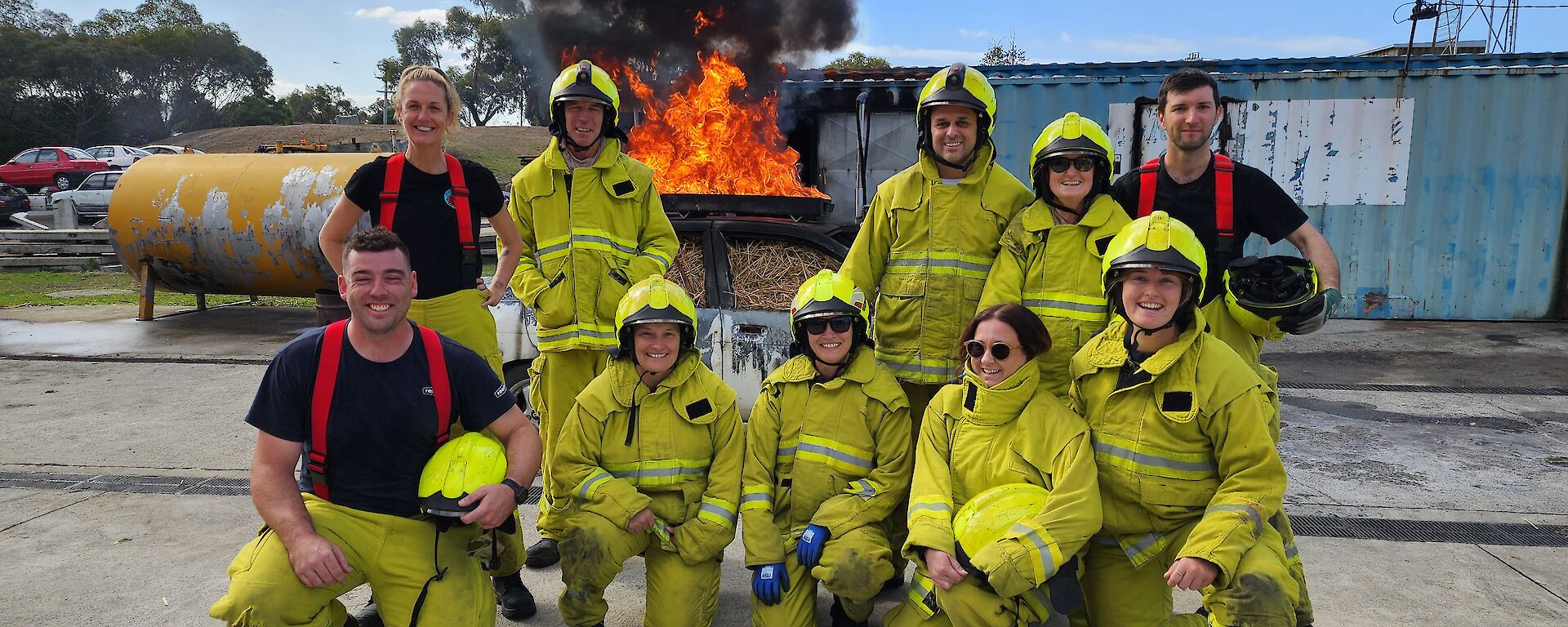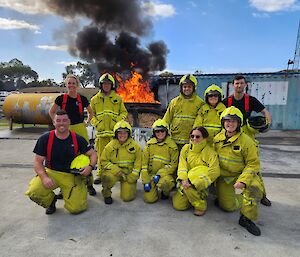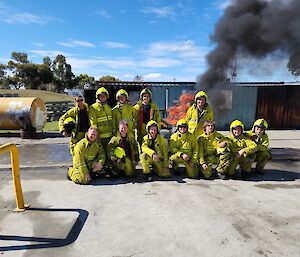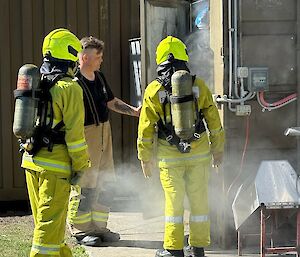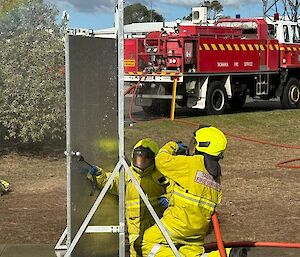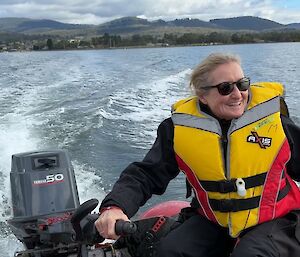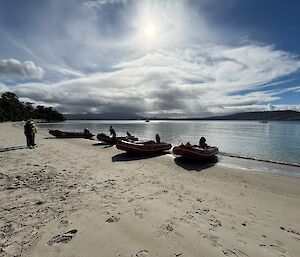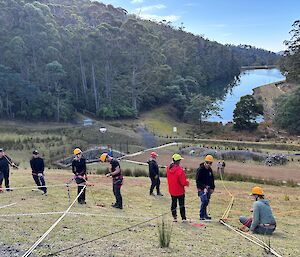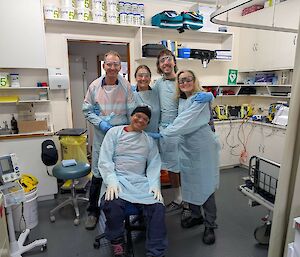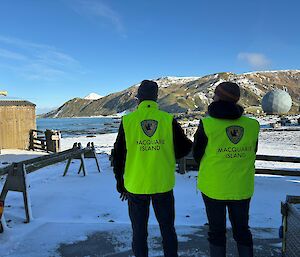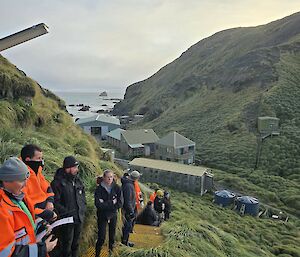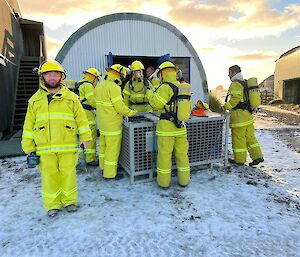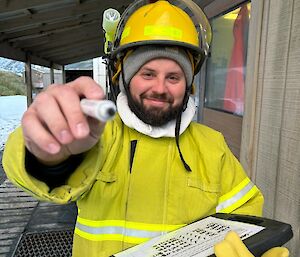Ready, Steady, Go
Being ready to respond to emergency situations is an essential skill on all stations. Training in emergency preparedness begins in Hobart during pre-departure training and doesn’t finish until the end of season.
For the Macquarie Island team, this training began many months ago.
Our Lay Surgical Assistant (LSA) team of four spent two weeks training at the Royal Hobart Hospital and learnt how to support the station doctor in theatre if ever required.
During Station Week, expeditioners completed four days of first responder and field training learning how to manage an injured or unwell person in the field. A lot of focus is given to preventing and managing hypothermia, especially relevant in our operating environment. Expeditioners learnt how to set up bothy and bivvie bags, and field tents and how to use field equipment such as stoves.
Fire Week is a huge highlight of pre-departure training and participants spent time in the classroom learning the science of fires and then lots of time getting their hands dirty wearing real fire fighter outfits and training in the use of extinguishers, fire hoses, hydrants, pumps and possibly the most fun of all, using breathing apparatus (BA). We learnt how to knock down fires and undertook exercises extinguishing fires in dark, smoke-filled buildings at the TasFire training site.
We were taken through incident management training at Kingston and conducted an incident response for a ‘lost’ expeditioner where we put into practice skills learnt at Station Week. We also did some search and rescue training and learnt about ropes, harnesses and rescues. This culminated in a day of cliff rescue training at the Waterworks Reserve in Hobart.
Three days were spent learning basic watercraft theory and skills and, after donning dry suits, we headed to the Derwent to complete our ‘Competent Crew’ training. This is especially important on Macquarie Island where expeditioners may need to support our trained coxswains during water-based operations.
This is only some of the practical training completed, all of which is complemented by online learning.
Once on station and before commencing any operations in the field, a team needs to be sure it is well equipped to manage emergencies. For this reason, stations enter into a period known as Field Operations Recess (‘Ops Recess’) immediately after station handover-takeover. The Ops Recess is a period of intensive focus on emergency response training for mustering, fire, search and rescue, LSAs and incident management. For the 78th ANARE this period began when the Nuyina left on 3 June.
We spent the next few days: training our fire teams; participating in fire, SAR, and tsunami/earthquake muster drills; kitting up and briefing the SAR team; and conducting LSA station familiarisation run by the station doctor.
A point of difference for the Macquarie Island Ops Recess is the inclusion of briefings on avian influenza, tsunamis and earthquakes, and conditions associated with our Access Permit issued by Tasmanian Parks and Wildlife. The team mustered in the ‘Ham Shack’ (an old radio hut on a hill behind station) in an impressive seven minutes following a tsunami alarm drill. This included a structural inspection of the Ham Shack by the carpenter team. We were even treated to a view of orcas in Garden Bay during the drill.
The week culminated in a desktop Incident Management Team exercise where we simulated a situation involving an injured expeditioner in the field. We truly came to appreciate just how many resources it takes to manage an incident. It’s not easy managing a complex field rescue when you also have to keep the station safe and running well.
After a busy few days, we emerged from Ops Recess with skills that allow us to respond to incidents and emergencies and realising just how much we rely on one another to stay safe. That’s not the end of it though and we will continue to develop our skills throughout the year undertaking regular training and drills.
Karen Pye, Station Leader

